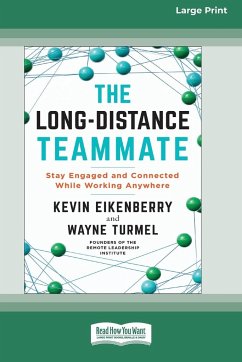
Intelligent Disobedience
Doing Right When What You're Told to Do Is Wrong
Versandkostenfrei!
Versandfertig in über 4 Wochen
15,99 €
inkl. MwSt.
Weitere Ausgaben:

PAYBACK Punkte
8 °P sammeln!
Torture in Abu Ghraib prison. Corporate fraud. Falsified records at Veterans Administration hospitals. Teachers pressured to feed test answers to students. These scandals could have been prevented if, early on, people had said no to their higher-ups. In this timely new book, Ira Chaleff goes deeply into when and how to disobey inappropriate orders, reduce unacceptable risk, and find better ways to achieve legitimate goals. The inspiration for the book, and its title, came from a concept used in guide dog training. Guide dogs must be able to recognize a command that would put their human and th...
Torture in Abu Ghraib prison. Corporate fraud. Falsified records at Veterans Administration hospitals. Teachers pressured to feed test answers to students. These scandals could have been prevented if, early on, people had said no to their higher-ups. In this timely new book, Ira Chaleff goes deeply into when and how to disobey inappropriate orders, reduce unacceptable risk, and find better ways to achieve legitimate goals. The inspiration for the book, and its title, came from a concept used in guide dog training. Guide dogs must be able to recognize a command that would put their human and themselves at risk, effectively resist the command, and identify safer options for achieving the goal. This is precisely what Chaleff shows humans how to do. He delves into the psychological dynamics of obedience, drawing in particular on what Stanley Milgram's seminal Yale experiments - in which volunteers were induced to administer shocks to innocent people - teach us about how to reduce compliance with harmful orders. Using dozens of vivid examples of historical events and everyday situations, Chaleff offers advice on judging whether intelligent disobedience is called for, how to effectively express opposition, and how to create a culture where, rather than "just following orders," citizens are educated and encouraged to think about whether those orders make sense.













